(Shalom-SCCRR Department of Research
Director: Prof. W. K. Omoka.
The voice of Peace Practitioners and Researchers)
SHALOM-SCCRR CONTRIBUTING TO POST-CONFLICT RECONSTRUCTION IN SOUTH SUDAN AND SUDAN THROUGH CONFLICT TRANSFORMATION ADVOCACY AND EDUCATIONAL DEVELOPMENT PROJECTS.
{© 2020 Shalom-SCCRR}*
By Austin Ngacha Macharia, MA.
(Peer-reviewed by Prof. W. K. Omoka and Shalom-SCCRR Dept. of Research)
“My special thanks to Shalom-SCCRR’s friends and donors all over the world who support the work of uplifting the lives of vulnerable communities living on the fringes of human development and stalked by frequent moments of violent conflict,” Hans Eigner, (MCCJ) & Structural engineer, South Sudan.
Introduction
Shalom-SCCRR, since its foundation, has always taken a key interest and active role in advocating for peace and educational development in the countries of South Sudan and Sudan. Both countries are members of IGAD (Intergovernmental Authority on Development) which Shalom-SCCRR signed MoU’s with in 2011 and 2015. In a letter by Rev. Dr. Patrick Devine, Executive Chairman, dated 10/1/2014, to His Excellency, H.E. Ambassador (Eng) Mahboub Maalin, Executive Secretary of IGAD, Shalom-SCCRR board of directors, expressed its concerns and some strategic considerations for sustainable peace and development in post-independence South Sudan (https://www.ecoi.net/en/file/local/1281828/1788_1390473217_mmr-16-1-14-2.pdf page 7 on UNMISS Report), see complete letter (https://shalomconflictcenter.org/shalom-sccrr-letter-to-igad-2014-advocacy-for-conflict-transformation/) . The progress of any country in respect to meeting basic human needs, governance and the realization of human rights relies heavily on the progress of education, among other factors.
Education is more than just a fundamental right for children all over the world – it is an opportunity that paves the way to a successful and productive future for those who are fortunate to attain it. However, it is important to note that education systems cannot be fully insulated from the effects of violence. In most of the African countries, education has consistently and systematically been negatively impacted by cycles of conflicts.

In the case of South Sudan, over two decades of civil war combined with the cumulative effects of years of conflict, political instability and extreme poverty, have tremendously impacted on education systems for generations. According to UNICEF (2020), more than two million children(over 70%) are out of school in South Sudan, putting their future and the future of this young country at risk. The vast majority of these children are girls, child soldiers, children with disabilities, and children who are just too hungry, too busy working to help their families, or too afraid to be attacked on their way to or from school.
The background of Shalom-SCCRR’s intervention in Sudan and South Sudan: (IGAD & Shalom-SCCRR’s MOU)
In a post conflict country, education should be a core element of the peace premium that is normally one of the main priorities for post-conflict reconstruction processes. Education, therefore, has a crucial bearing on prospects of peace, productivity and overall development. The communities in post conflict areas like South Sudan see education as the most important peace dividend (GoSS, 2012). Across South Sudan, demand for education is high and rising. However, without infrastructural development, it will be difficult for South Sudan to generate equitable learning opportunities and economic dynamism needed to build advanced human development and shared prosperity.
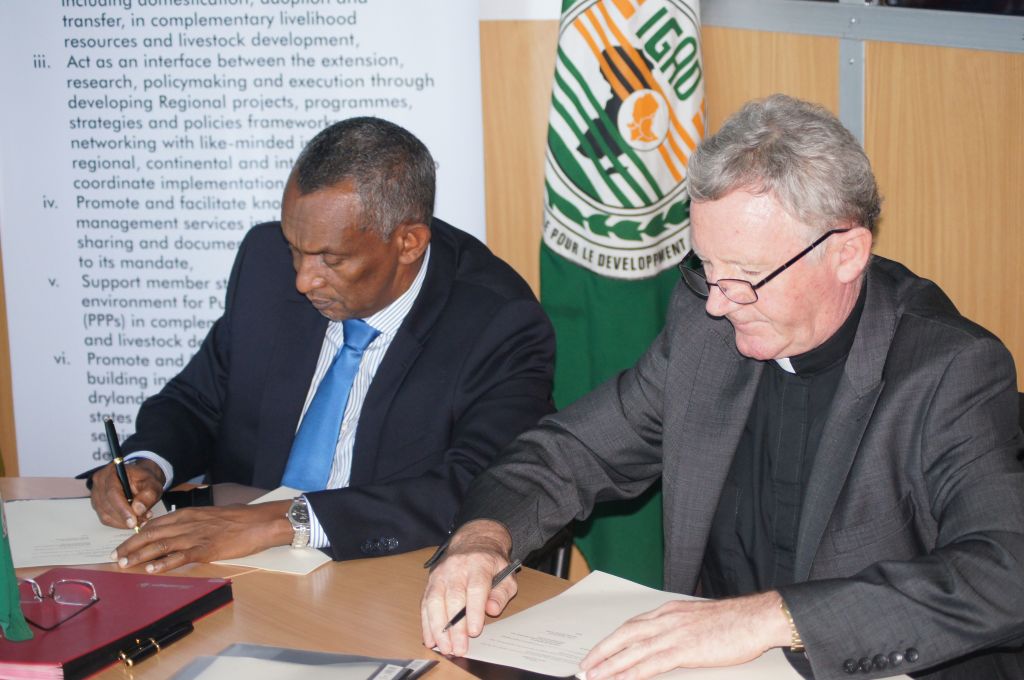
Shalom-SCCRR recognizes that conflict has a devastating impact on education both in terms of the suffering and psychological impact on learners, teachers, and communities; and more importantly, the degradation of the education system and its infrastructure. It is from this background that Shalom-SCCRR has been contributing to post conflict reconstruction in the IGAD countries including in Sudan and South Sudan, through the implementation of its school educational and development projects. The organization, therefore, aims at contributing to the enhancement and expansion of learning opportunities for vulnerable children from poor and marginalized communities living in the conflict environments in these countries. The intervention in South Sudan was initiated with the signing of the MoU between the Shalom-SCCRR and the Intergovernmental Authority on Development (IGAD) in 2011; where the former is to support in conflict transformation and peacebuilding processes in the IGAD region. Shalom-SCCRR renewed its MOU with IGAD (Intergovernmental Authority on Development) in 2015.
In 2018, IGAD endorsed Shalom-SCCRR to the United Nations, stating that:
“Shalom distinguishes itself by its unique way of working, incorporating theory through research and practice through training on skills in conflict resolution and transformation. The organization has a growing reputation for its peace-building work, professionalism, high research ability, and conflict sensitivity. Its well-structured training modules on analytical skills and knowledge of peace-building is a major contributor to our work… Shalom is unquestionably an exceptional organization to partner with. Shalom’s experience in the region suggests that the UN and Shalom would greatly benefit from this association”.

Shalom-SCCRR is fortunate to have one of its board member; Dr. Michael Comerford, based in South Sudan for his work assignment. Shalom-SCCRR appreciates the assistance and coordinating role that Dr. Michael Comerford has applied to all these projects. The role of Ms. Rosaline Serem, MBA, and Rev. Oliver Noonan MA, Shalom-SCCRR Executive Director in organizing transport and other logistics for all these projects is also highly commended.
Shalom-SCCRR Educational and Development Projects implemented in Sudan and South Sudan.
In response to the United Nation’s Sustainable Development Goals for achieving a better and more sustainable future for all, Shalom-SCCRR has been proactive in supporting education in the countries of Sudan and The Republic of South Sudan since 2011. The organization has provided teaching, learning and development support to primary, secondary and tertiary institutions. The support has been in the form of renovation and construction of classrooms and standard latrines, installation of solar lighting systems, provision of school furniture (desks, lockers, tables and chairs) and providing support for boarding facilities (beds, mattresses and mosquito nets). In the last 9 years, Shalom-SCCRR has implemented school educational and development projects in South Sudan that is currently directly benefiting over 6,000 learners and teachers in primary, secondary and tertiary institutions of learning, and indirectly benefiting a population of about 30,000 other members of the community. Highlighted in this paper are just a sample of the projects that have been implemented by the organization in the context of South Sudan.
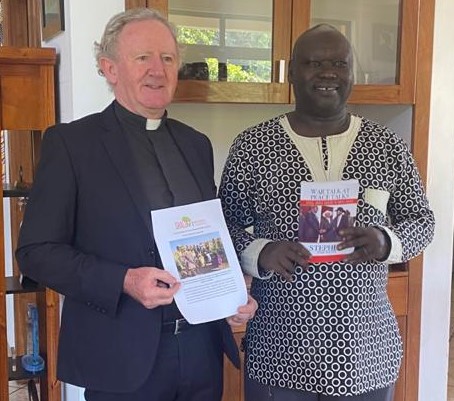
1. Construction and renovation of educational facilities:
Educational facilities in most of the schools in South Sudan are still insufficient, impoverished state, and some are not even up to the required quality. To contribute to the improvement of this state of affairs, Shalom-SCCRR is supporting in the construction and renovation of school facilities – mainly classrooms, toilets and dormitories – in South Sudan just like in other parts of IGAD countries. As a result, there is currently increase in retention and enrolment of pupils and students in a number of schools supported in both South Sudan and Sudan.

2. Solar Lighting Systems:
Just like in other IGAD countries supported by Shalom-SCCRR, most institutions in South Sudan are still struggling in terms of lighting systems. So far, the organization has provided fully accessorized solar lighting systems (solar panels and batteries) to over 10 institutions in South Sudan and some parts of Sudan. As a result of this support, there is currently improved security in these facilities hence safety for both the learners and teaching staff within the institutions. Moreover, there has been significant improvement in academic performance in these schools and this has been attributed to the fact that the learners now have ample time to study both in the early morning and late evening hours within the premises.
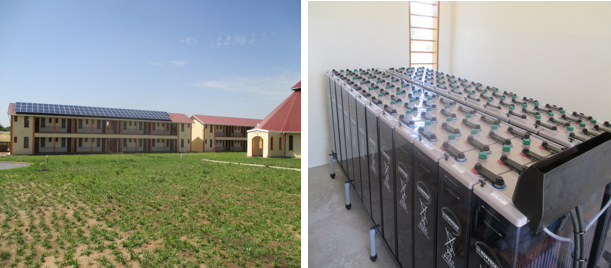
Fr. Daniele who was overseeing the implementation of the project noted that the solar units are enough to light and provide power needed to run all the Centre’s operations and activities.
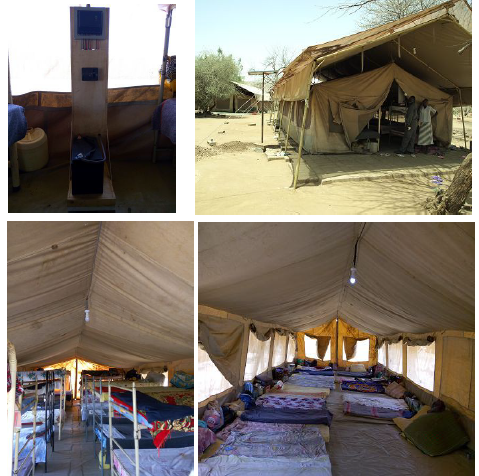
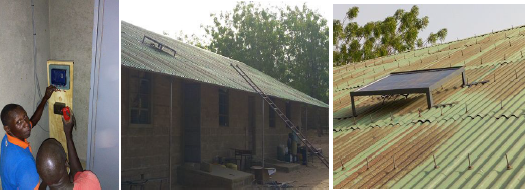
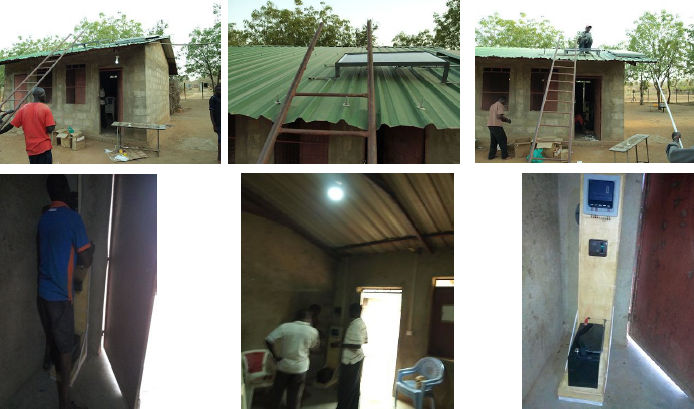
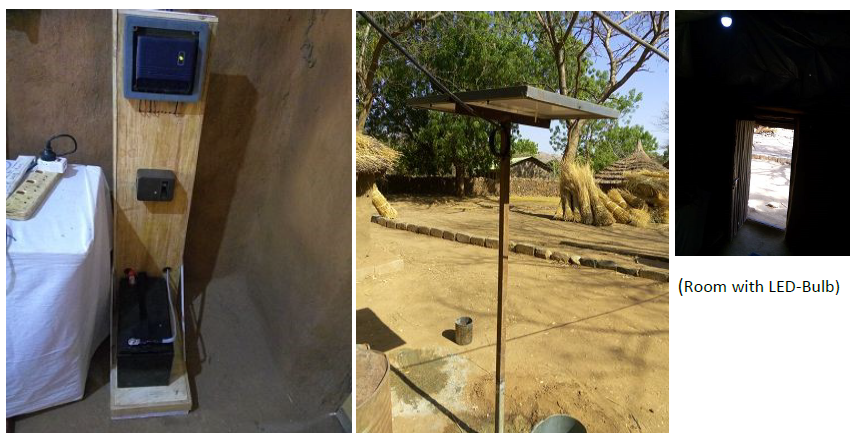
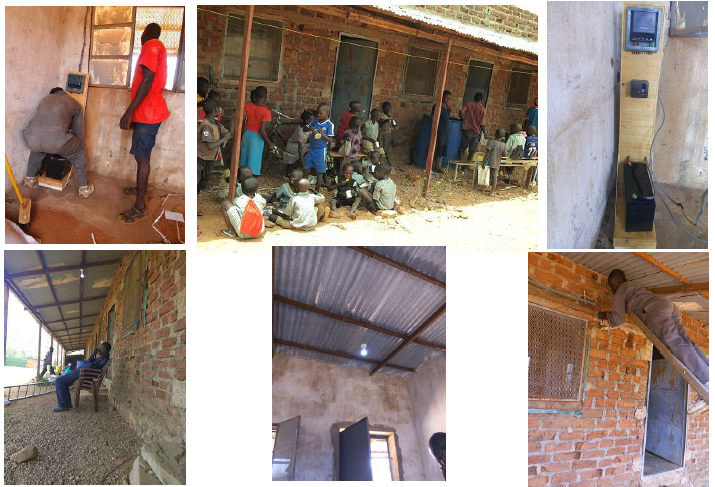
3. School furniture:
Pupils and students spend an average of 8 hours in classrooms. However, if the classrooms are not conducive for learning particularly in regards to seating amenities, then the level of concentration among the learners is hugely compromised. In the case of South Sudan, most schools do not have enough desks to guarantee conducive learning. As a result, an average of 5 pupils and students share a desk or sometimes even seat on the ground during learning sessions. In order to contribute to the improvement of the learning environment, Shalom-SCCRR has provided desks, lockers and chairs to these schools.
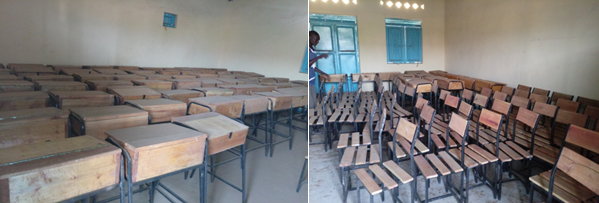
4. Boarding facilities:
Most of the pupils and students attending schools in vulnerable and pastoralist communities in Eastern Africa do walk to and from schools on a daily basis. The average distance covered by these children in order to access education is between 12 to 20 kilometres every day. After walking for such distance, the children get to schools very exhausted and hence have minimal concentration during class sessions. Moreover, the roads to and from schools are normally insecure due to high chances of the children being attacked by the wildlife and bandits. In addressing these challenges, Shalom-SCCRR is supporting the schools in South Sudan through the provision of boarding facilities in the form of construction of dormitories and, supply of beds and mattresses. The support not only enables the pupils and students to have good rest and concentrate more in their studies, but also contributes to their safety and improved academic performance. Furthermore, the girls are now remaining in schools and are safe from early school dropout which is attributed mainly to premature pregnancies and forced marriages while operating from home. The need to support the girl child cannot be emphasized enough. The schools have, therefore, become secure and protective tents for girl child.
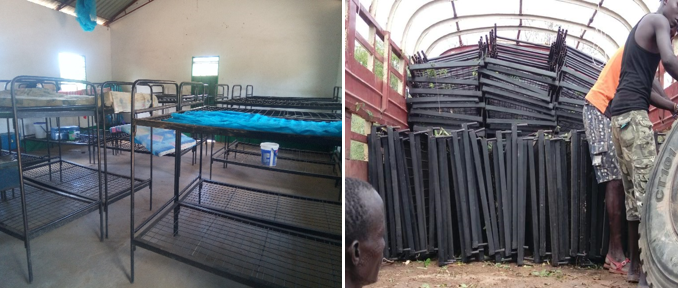
Conclusion
Education in South Sudan is becoming a means through which people find hope in their lives. Through improvement of school infrastructure and provision of learning and teaching materials, Shalom-SCCRR envisions a better future for the people of South Sudan. The organisation’s school educational and development program continues to contribute to equitable access to formal education through the reconstruction and improvement of education system in this young country. By being in school, boys from pastoralist communities are saved from the warrior tradition where young men are seen as the strong ones to execute inter-communal attacks and livestock raids. Girls on the other hand, are saved from premature pregnancies and early marriages thereby being empowered to forge a better future where they can actively participate in leadership and formal decision-making in their communities.
Shalom-SCCRR believes in education which empowers communities to be the architects of their own peaceful futures and sustainable development. The organization work will not be possible without the continuous generous support and contributions from our donors and friends particularly in the USA, UK-Northern Ireland and the Republic of Ireland. Our appreciation go to all our donors and friends for being our ‘wings’ in conflict transformation and peacebuilding work in Eastern Africa.
* This document is copyright to Shalom-SCCRR and cannot be reproduced without permission. Quotations from it should be acknowledged to Shalom-SCCRR
RELEVANT LINKS
https://www.ecoi.net/en/file/local/1281828/1788_1390473217_mmr-16-1-14-2.pdf
Eastern Africa: Shalom-SCCRR receives United Nations (UN) Accreditation
THE INTERNATIONAL CARING AWARD BROCHURE WITH UPDATES FROM SHALOM-SCCRR
http://www.catholicradionetwork.org/?q=node/13036
SUBMISSION TO PUBLIC CONSULTATION ON THE IRISH AID WHITE PAPER
An Understanding of the Work of Shalom-SCCRR in 2019-2020: By Prof. Wanakayi K. Omoka, PhD
By:
Austin Ngacha Macharia MA.
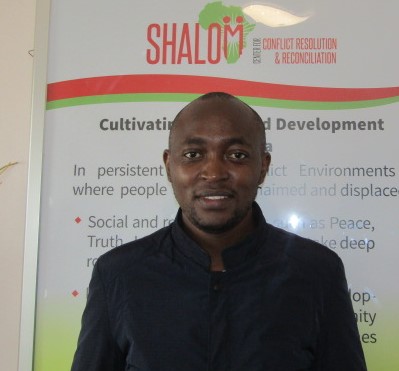
Project Officer, Ilemi Triangle Project,
Shalom Center for Conflict Resolution and Reconciliation (SCCRR)

